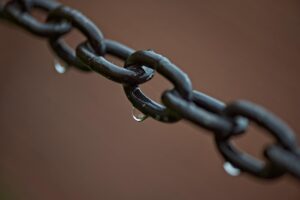Tropical Storm Barbara Just Became a Hurricane—Here’s What You Need to Know
So, Tropical Storm Barbara just got upgraded to a full-blown hurricane off Mexico’s coast. And honestly? That’s got a lot of folks worried. Early-season hurricanes like this one are sneaky—they can go from “meh” to “oh crap” real fast. We’re talking heavy rains, crazy winds, and floods that pop up out of nowhere. Let me break down what’s happening, where it’s headed, and most importantly—how to stay safe if you’re anywhere near this thing.
Where Barbara Is Now and Where She’s Headed
Latest Position and Movement
Right now, Barbara’s hanging about 300 miles southwest of Acapulco, moving northwest at 12 mph. Winds? Yeah, they’ve hit 75 mph—just enough to officially call it a Category 1 hurricane. The weird thing? Forecasters think it might actually turn away from land. But don’t relax yet—coastal areas could still get slammed with some serious side effects.
How This Storm Got Strong So Fast
Here’s the wild part: On Monday it was just a tropical depression. By Tuesday? Full-on tropical storm. Now? Hurricane status. That’s insane, right? The ocean’s like a warm bathtub out there, and with zero wind shear to slow it down, Barbara’s basically on steroids. Reminds me of that 2013 hurricane with the same name—wrecked parts of southern Mexico real bad.
What This Means for Mexico
Areas That Need to Watch Out
Guerrero and Michoacán states already have hurricane warnings up. Even if the eye stays offshore—which is looking possible—these places could still get wrecked by massive waves and crazy rainfall. Some spots might see up to 10 inches of rain. And you know what that means in mountain areas? Landslides. Scary stuff.
The Real Dangers (Besides Just Wind)
Storm surges could hit 4 feet in some places. Wind gusts near the center? Over 90 mph. But here’s what Dr. Elena Ruiz from the NHC said that stuck with me: “Even if Barbara doesn’t come ashore, those outer bands are like tentacles—they’ll reach out and cause flash floods anywhere.” Chilling, right?
How to Prepare If You’re in the Danger Zone
What Officials Are Saying
Emergency plans are already rolling in coastal towns—Zihuatanejo and Lázaro Cárdenas have shelters ready to go. The big message? If they tell you to evacuate, don’t be that person who stays behind to “ride it out.” Just don’t.
Practical Tips That Actually Help
• Tie down or bring in anything in your yard that could become a missile
• Pack a bag with meds, important papers, and extra batteries—like, now
• Keep CONAGUA’s radio updates on—AM 870 is the station to watch
Why Early-Season Hurricanes Are So Unpredictable
Looking Back at Other May Hurricanes
Since 2000, about 60% of May hurricanes in this region have pulled this same rapid-intensification trick. That 2013 Barbara I mentioned? Did $200 million in damage. These early storms are like boxers who don’t follow the rules—they hit harder than you expect.
The Climate Change Connection
Dr. Omar Vargas put it bluntly: “The ocean’s getting warmer, so these storms are basically chugging energy drinks.” We’re seeing more storms that go from mild to monstrous in hours. They even have a name for them—”bomb cyclones.” Sounds about right.
How to Track Barbara in Real-Time
Best Resources Right Now
• NHC’s live tracker (bookmark this)
• NOAA’s satellite view
Social Media Alerts That Matter
For local updates, @ConaguaClima on Twitter is on top of things. Or just keep a radio tuned to AM 870—old school, but it works when cell towers go down.
The Bottom Line
Here’s the thing: Barbara could still surprise us. These storms have a habit of doing last-minute U-turns. If you’re near the coast, stay alert, stay informed, and for god’s sake—if officials say to leave, just go. Better to be the overcautious one telling the story later than… well, you know. Drop a comment if you’re seeing anything unusual in your area—sometimes the best warnings come from regular people watching out their windows.













2 thoughts on “Tropical Storm Barbara Becomes Hurricane Near Mexico”